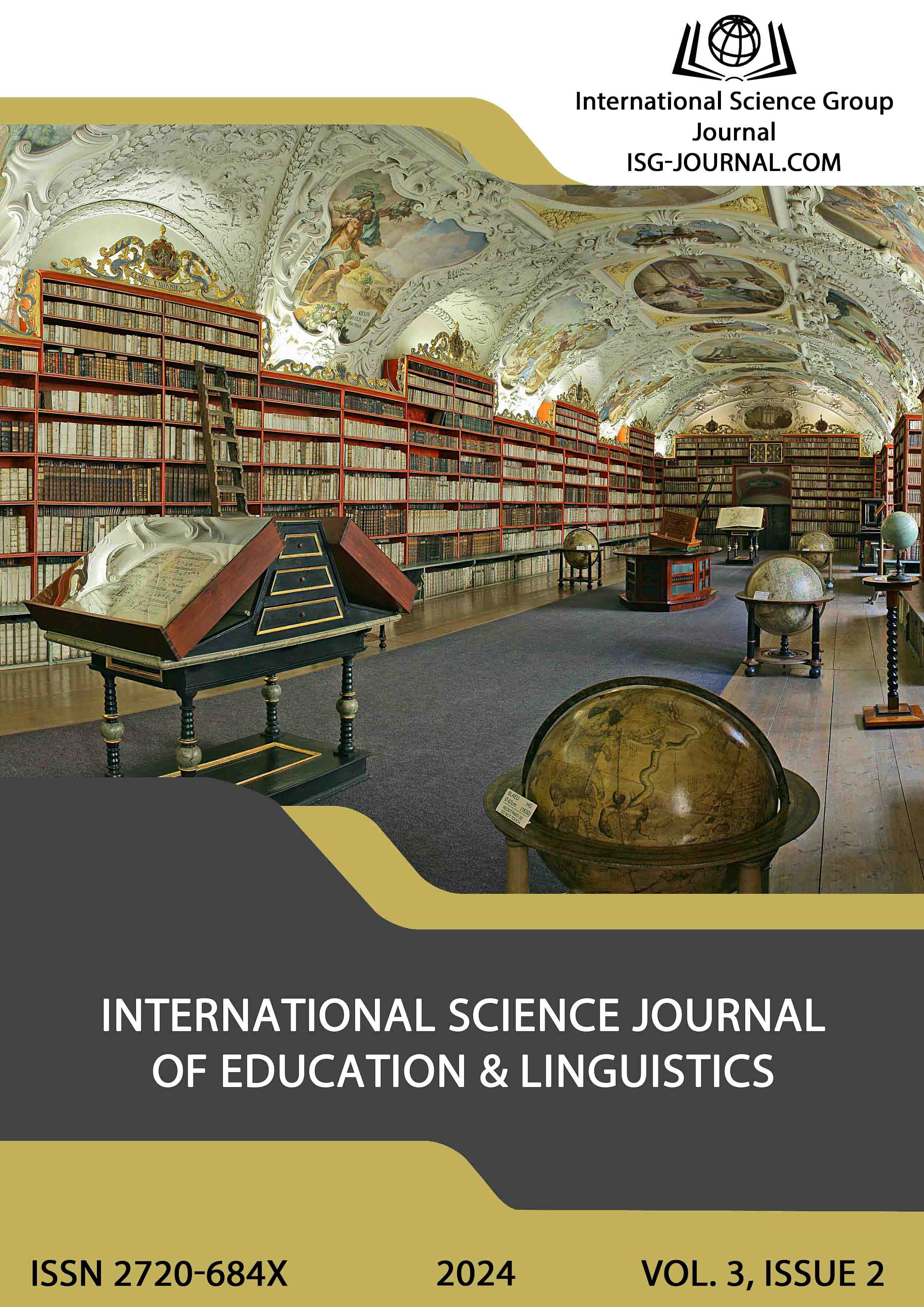Evaluative lexicon as a characteristic of modern political discourse
DOI:
https://doi.org/10.46299/j.isjel.20240302.11Keywords:
political discourse, evaluative lexicon, lexicon of political discourse, semantics, ideological polysemy, marked lexicon, polythemeAbstract
The article examines the peculiarities of the functioning of evaluative lexical units in the communicative space of political discourse. The peculiarities of political discourse as a communicative phenomenon are clarified. They include extralinguistic factors: social, cultural-historical, ideological, psychological context, as well as a number of communicative and pragmatic target instructions of the addressee and interactions with the addressee,. It was established that political discourse is a type of institutional discourse that has characteristic system-forming features and functions: suggestive, persuasive, informative and expressive. Such signs of political discourse are characterized by a gradual nature. Features of functioning and specifics of implementation of evaluative vocabulary in modern political discourse are described. It was found that the valuable connotation of language units is manifested at all levels of the language system. As an extralinguistic category, the concept of "estimate" appears in the semantic structure of the word as an evaluative component. Three types of evaluation are distinguished: functional, connotative, and pragmatic. The following features of the semantics of political vocabulary are considered as factors of semantic uncertainty: breadth of meaning; abstraction; the complexity of the meaning, which is due to the complexity of the denotation itself; blurred semantic boundaries of words of gradual semantics; interdiscursive ambiguity; relativity of designation; ideological polysemy. Various classifications of evaluative lexicon are presented, reflecting the manifestation of the category of evaluation in language: negative-evaluative and positive-evaluative vocabulary; usual-evaluative and occasional-evaluative vocabulary; constant-evaluative and chrono-evaluative vocabulary; personally and socially evaluative vocabulary. It was determined that in the context of political discourse, ideologically marked evaluative lexicon, which serves as an expression of the views and ideas of certain social groups, occupies a special place.References
Громовенко, В. (2015). Дослідження політичного дискурсу в лінгвістиці. Наукові записки Вінницького державного педагогічного університету імені Михайла Коцюбинського. Серія: Філологія (мовознавство), 21, 238–242..
Петренко, В.В. (2007). Політична мова як засіб маніпулятивного впливу: Автореф. дис. ... канд. політ, наук: 23.00.02 / Київський національний ун-т ім. Т. Шевченка, Київ.
Кондратенко, Н. В. (2007). Український політичний дискурс: монография. Одес. нац. ун-т ім. І.Мечникова. Одеса: Чорномор'я.
Нарійчук, М. (2013). Українські політичні реалії в англомовному політичному дискурсі. Науковий вісник Східноєвропейського національного університету імені Лесі Українки, 19, 190-193.
Dijk, T.A. van. (2004). Ideological Discourse Analysis, Retrieved from: http://www.discourses.org/Teun.html
Hacker, K.L. (1996). Political Linguistic Discourse Analysis. The Theory and Practice of Political Communication Research. New York: State University of New York Press, 28 - 55.
Шейгал Є.І. Семіотика політичного дискурсу: монографія. Вінниця: Зміна, 2000.
Dijk, T.A. van. (2001). Ideology and Discourse. A Multidisciplinary Introduction. Retrieved from: http://www.discourses.org/ Unpublished/ide odis2.html
Караулов, Ю.М., Петров, В.В. (1989). Від граматики тексту до когнітивної теорії дискурсу/Дейк Т. А. ван. Мова. Пізнання. Комунікація.
Димарський, М.Я. (1998). Текст – дискурс – художній текст. Текст як об'єкт багатоаспектного дослідження: Зб. статей науково-методичного семінару "Textus", СГУ, 3 (4.1), 18-27.
Арутюнова, Н.Д. (1999). Мова та світ людини, Київ.
Cook G. The Discourse of Advertising. London, New York, 1992.
Карасік, В.І. (2004). Мова соціального статусу. М: ІТДГК «Гнозіс».
Карасік, В.І. (2000). Про типи дискурсу. Мовна особистість: інституційний та персональний дискурс: зб. наук. праць ВДУ.
Чернявська, В.Є. (2006). Дискурс влади та влада дискурсу: проблеми мовного впливу. М: Флінта: Наука.
Паршин, П.Б. (1986). Лингвистические методы в концептуальной реконструкции. Системные исследования, 2.
Тарасов, Є.Ф. (1983). Мовленнєвий вплив: досягнення та перспективи дослідження. Мова ідеологічного впливу, М., 76-92.
Корнійко, Т.Г. (2003). Основні підходи до вивчення політичної мови у сучасних політико-лінгвістичних дослідженнях. Вісник МНУ, 12, Політичні науки, 5, 74-85.
Стернін, І.А. (1979). Проблеми аналізу структури значення слова. Київ.
Вольф, Є.М. (1985). Функціональна семантика оцінки. М: Наука.
Телія, В.М. (1986). Конотативний аспект семантики номінативних одиниць. М: Наука.
EU-US summit, Brussels, 15 June 2021. Retrieved from https://www.consilium.europa.eu/en/meetings/international-summit/2021 /06/15/
Епштейн, M.H. (1991). Ідеологія та мова (побудова моделі та осмислення дискурсу). Питання мовознавства, 6, 19-33.
Комлєв, Н.Г. (2006). Компоненти змістовної структури слова. Київ.
Стернін, І.А. (1979). Проблеми аналізу структури значення слова. Одеса.
Телія, В.М. (1986). Коннотативний аспект семантики номінативних одиниць. К.: Наука.
Голованевський, Л.Л. (2002). Оцінність та її відображення у політичному та лексикографічному дискурсах. Філологічні науки, 3, 78-87.
Крисін, Л.П. (2000). Соціальна маркірованість мовних одиниць. Питання мовознавства, 4, 26-42.
Воробйова, О.І. (2000). Політична лексика. Її функції в сучасному усному та писемному мовленні. Харків.
Downloads
Published
How to Cite
Issue
Section
License
Copyright (c) 2024 Anzhelika Solodka,, Tetiana Moroz

This work is licensed under a Creative Commons Attribution 4.0 International License.





